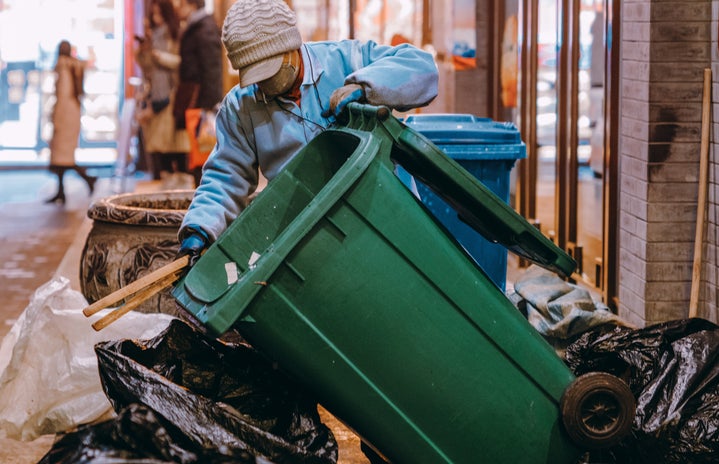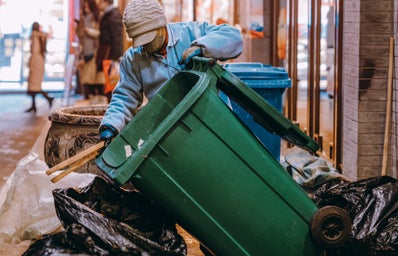The St. Pete campus is located directly on the bay, a huge deciding factor for many students choosing to study here. This is also a major reason to prioritize sustainability in order to keep our beautiful beaches clean. For example, the USFSP campus could greatly benefit from recycling bins on each of the trash floors, allowing students to make more responsible choices in what is going to the landfill. With the amount of trash produced from the almost 4,000 students attending USFSP every day, not to mention the staff and faculty, employing a more in-depth recycling system could drastically reduce the amount of waste polluting our beautiful city straight from the dorms.
Let’s take a look at the budgeting and sustainability practices in place. Currently the St. Pete Campus there are 31 recycling stations made of recycled milk jugs. Additionally, behind the student center, there are huge recycling dumpsters that are accessible to students and staff, according to the USFSP website. Luckily, USF makes sustainability a priority on campus, continually improving food waste management and researching waste diversion across the board. Anyone who has participated in labs knows about the green trash bin that is only for recyclable gloves. This is of course part of Kimberly Clark RightCycle Program that helps to lower nitrile waste. Similarly, they utilize many programs that are up to the students to use like the e-waste program. But these programs do require prior knowledge and motivation since they are not as easily accessible to students on campus. For example, to recycle old phones using the e-waste program, you must first call the Campus Computing Help Desk and the recycling dumpsters are a decent walk from the dorms if you are weighed down by heavy recyclables.
Ethics and choice of actions in this case is widely based on the responsibility of the student. In other words, if USFSP properly introduces a wider recycling system in the dorms, how can we as students ensure that we are utilizing it to the best of our ability? One of the many common misconceptions surrounding recycling is that paper is always better than plastic. However, many paper containers such as milk cartons or to-go containers are composed of paper bonded to a plastic or polyethylene liner. Similarly, canned foods often also contained this “hidden plastic” liner. Because of this, the introduction of non-recyclable containers into large-scale recycle bins like those that would be used in the trash rooms creates a whole new set of problems. These materials must be sorted out by workers, creating an ethical contingency: is it worth the money, time, and energy invested into recycling when the process can be so easily disrupted? In a college environment, we can assume that recycling isn’t the top priority among students with essay deadlines and extracurriculars. Thus, we want to put a system in place that makes recycling as easy as possible. This involves giving them easy access to recycling bins but also making sure they have the knowledge to integrate their own methods of reusing. In order to create a cleaner environment, careful practices must be sanctioned, educating students on what proper recycling looks like. By uplifting the current generation of students and motivating them to participate in sustainability we can guarantee that we are creating a greener campus.
For example, our campus might be best served by paying for cardboard-only recycling in the dorms to reduce the bulk of what individuals must carry to the recycling dumpsters. Additionally, encouraging students to reuse their other containers. Similarly, depending on health practices, coffee shops on campus should encourage bringing in reusable cups. Together, we can work to create a cleaner campus.


